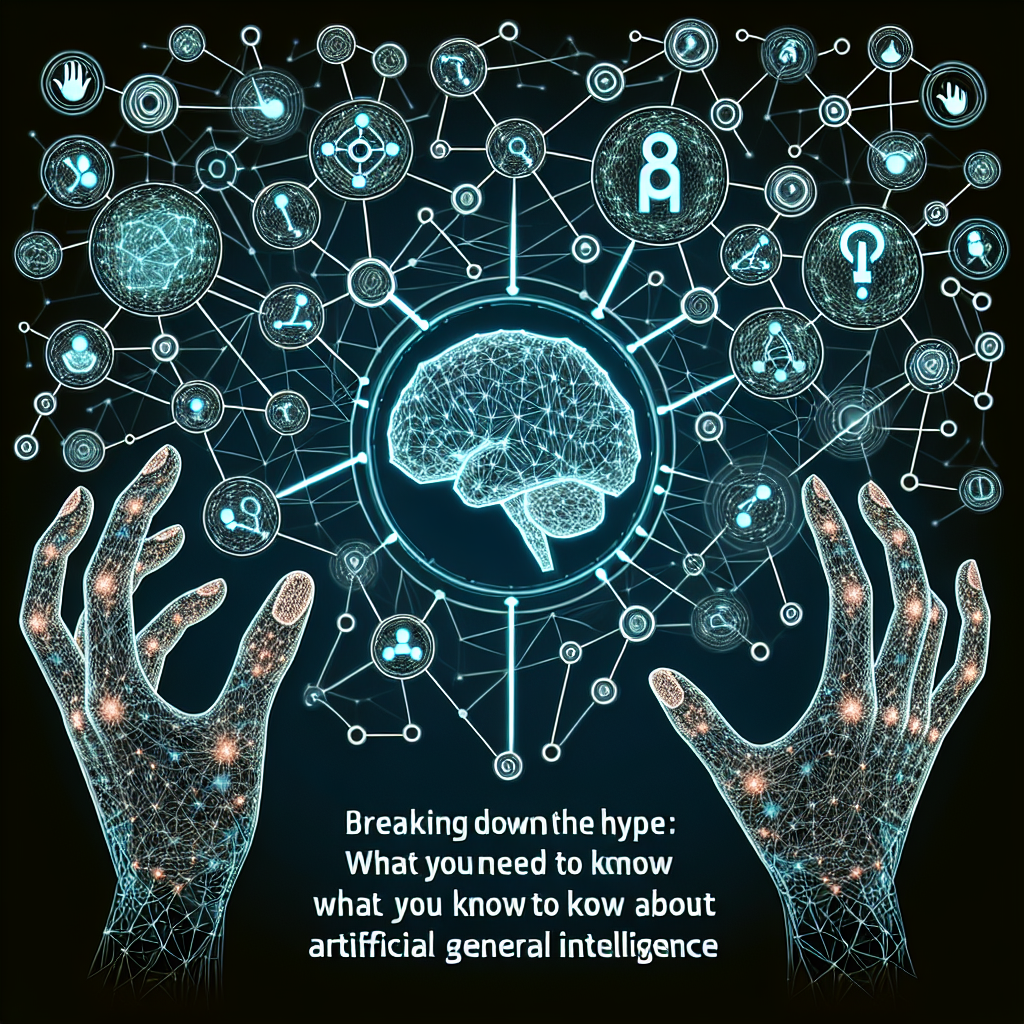Artificial General Intelligence (AGI) is a term that has been generating a lot of buzz in recent years. The idea of creating machines that can think and reason like humans is both exciting and daunting. But what exactly is AGI, and what do we need to know about it? In this article, we will break down the hype surrounding AGI and provide you with the information you need to understand this cutting-edge technology.
What is Artificial General Intelligence?
Artificial General Intelligence, also known as strong AI or full AI, refers to a type of artificial intelligence that possesses the ability to understand, learn, and apply knowledge in a way that is indistinguishable from human intelligence. Unlike narrow AI, which is designed to perform specific tasks, AGI is capable of solving a wide range of problems and adapting to new situations without being explicitly programmed to do so.
The goal of AGI research is to create machines that can think and reason like humans, with the ability to understand natural language, learn from experience, and make decisions based on complex reasoning. While we have made significant advancements in AI technology in recent years, achieving AGI remains a challenging and elusive goal.
Breaking Down the Hype
As with any emerging technology, there is a lot of hype surrounding AGI. From the potential for revolutionary breakthroughs in science and technology to the fear of job loss and ethical concerns, the possibilities and implications of AGI are vast and varied. Let’s break down some of the key points you need to know about AGI:
1. Potential Benefits of AGI:
– Improved problem-solving capabilities: AGI has the potential to revolutionize industries such as healthcare, finance, and manufacturing by providing more efficient and effective solutions to complex problems.
– Enhanced automation: AGI could streamline processes and increase productivity by automating tasks that currently require human intervention.
– Advancements in science and research: AGI could accelerate scientific discovery by analyzing vast amounts of data and identifying patterns that humans may overlook.
2. Ethical Concerns:
– Job displacement: One of the biggest concerns surrounding AGI is the potential for widespread job loss as machines take over tasks traditionally performed by humans.
– Bias and discrimination: AGI systems are only as good as the data they are trained on, which can lead to biases and discrimination in decision-making processes.
– Control and transparency: There are concerns about the lack of control and transparency in AGI systems, as they may make decisions that are difficult to understand or predict.
3. Challenges in AGI Development:
– Complexity: Developing AGI is a complex and multidisciplinary endeavor that requires advances in fields such as cognitive science, neuroscience, computer science, and mathematics.
– Data limitations: AGI systems require vast amounts of data to learn and improve, which can be a challenge in fields where data is scarce or difficult to collect.
– Safety and security: Ensuring the safety and security of AGI systems is a major concern, as they have the potential to cause harm if not properly controlled or monitored.
FAQs
Q: When will AGI be achieved?
A: While it is difficult to predict an exact timeline for achieving AGI, experts estimate that we could see significant advancements in the next few decades. However, creating a truly human-like intelligence remains a long-term goal that may take many years to achieve.
Q: What are the ethical considerations of AGI?
A: Ethical considerations of AGI include issues such as job displacement, bias and discrimination, control and transparency, and safety and security. It is important to address these concerns early on in the development of AGI to ensure that the technology is used responsibly and ethically.
Q: How will AGI impact society?
A: AGI has the potential to have a profound impact on society, from revolutionizing industries and creating new job opportunities to raising ethical and social issues. It is important for policymakers, researchers, and industry leaders to collaborate on developing guidelines and regulations to ensure that AGI benefits society as a whole.
In conclusion, Artificial General Intelligence is a fascinating and complex field that has the potential to transform the way we live and work. While there are many challenges and ethical considerations to address, the possibilities of AGI are endless. By staying informed and engaging in discussions about the future of AI, we can ensure that AGI is developed in a responsible and beneficial way.

